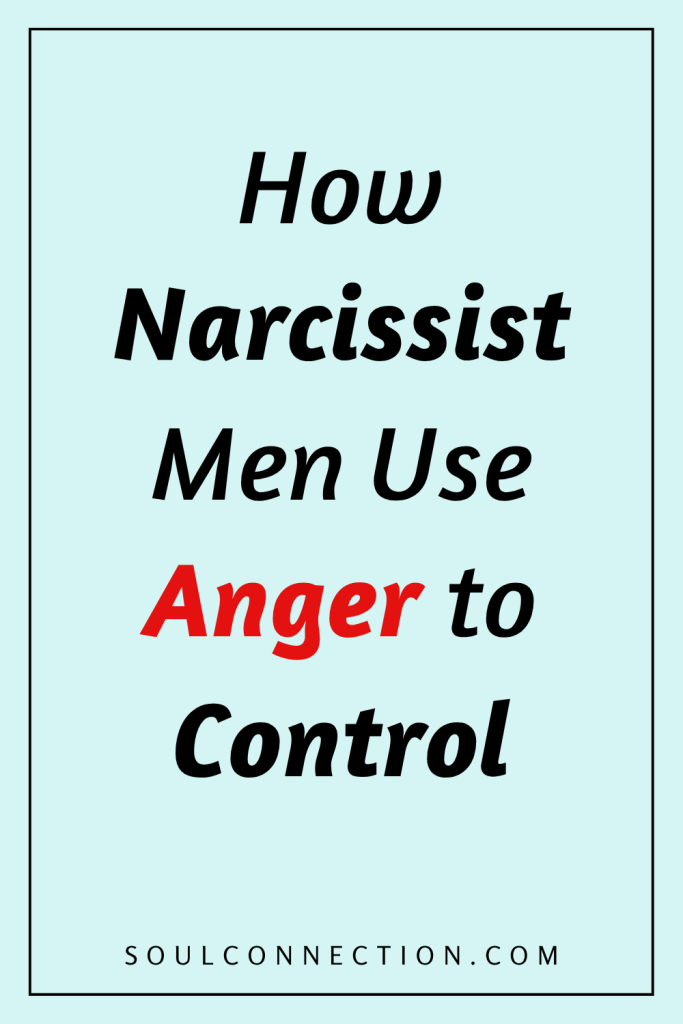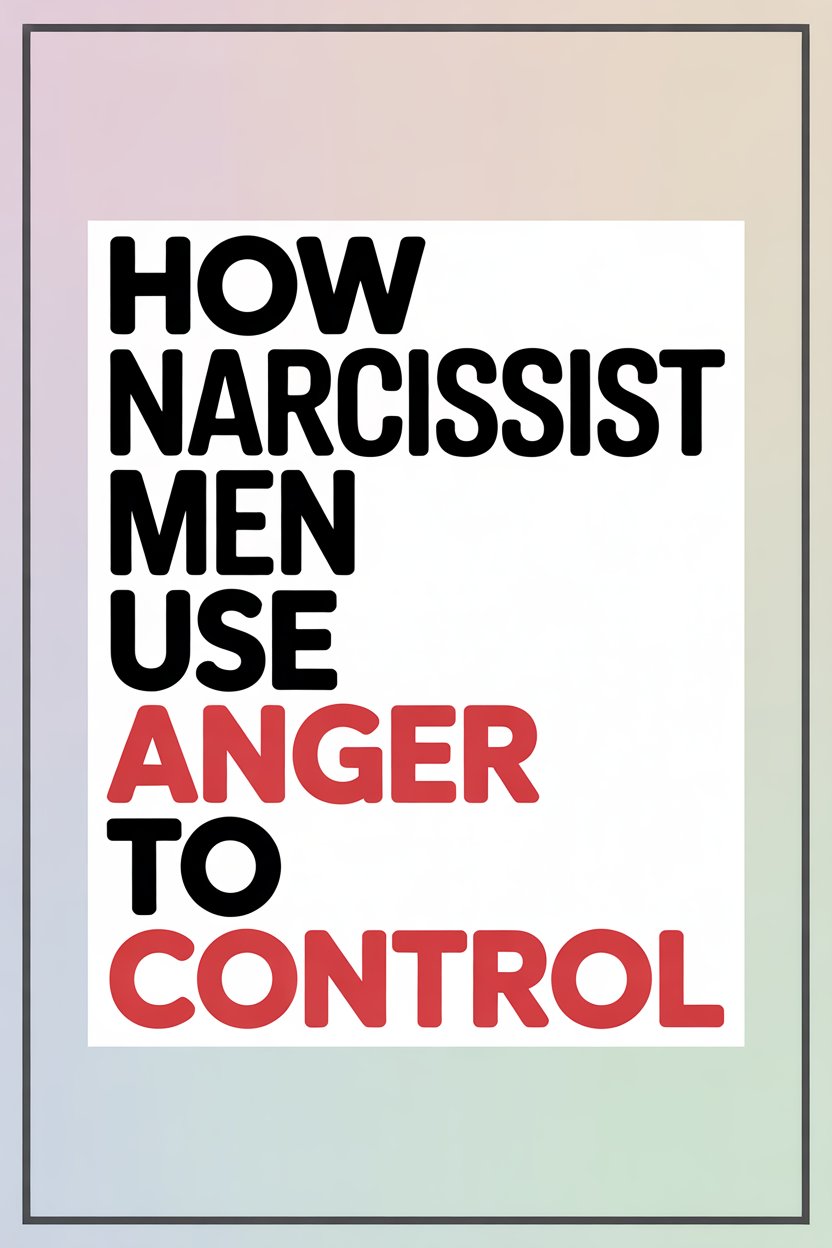Ever notice how some men seem to treat anger like it’s a remote control for people? Not the gentle “I’m frustrated” kind, but the thunderous, hair-raising, everyone-walks-on-eggshells kind.
For partners of narcissistic men, this “anger-as-remote-control” trick isn’t just a bad mood—it’s a tool. A sharp one, at that.
Pull up a chair, pour a cup of whatever soothes your nerves (herbal tea, boxed wine, or the tears of your ex—no judgment). It’s time for a frank chat about how narcissist men wield anger, and what anyone tangled up in their cyclone needs to know.
Anger as a Performance, Not a Feeling
With narcissistic men, anger is less an emotion and more a one-man stage show. There’s usually an audience—ideally one that’s easy to rattle.
Instead of expressing feelings, the anger serves a purpose: to destabilize, intimidate, and (let’s just say it) get their way.
Does he fly into a rage over a missing remote, a lukewarm coffee, or a “wrong” look? It’s rarely about the actual issue. It’s about showing who’s boss.
The performance is meant to teach everyone else to tiptoe carefully, lest they “provoke” another outburst.
The Power of Fear
Anger, when weaponized by a narcissist, works like a charm because it’s quick and effective. Most people dislike conflict, so they’ll do nearly anything to avoid it, especially after witnessing a few of his volcanic episodes.
Here’s where fear comes in. After enough explosions—real or threatened—you learn what sets him off.
You start avoiding those landmines, even if it means sacrificing your comfort, opinions, or needs. In other words, the anger doesn’t just control arguments; it controls behavior, decisions, and even thoughts.
Ever find yourself replaying conversations in your head, rehearsing every word to avoid “setting him off”? That’s the fear doing its job.
Blame Shifting and Gaslighting
Narcissist men rarely stop at yelling. When called out for their rage, they pivot faster than a politician at a press conference. Suddenly, you’re the problem: too sensitive, too dramatic, too “disrespectful.”
Classic lines include:
- “You make me so angry—if only you’d listen!”
- “If you didn’t act like that, I wouldn’t lose my temper.”
- “Can’t you take a joke?”
This is gaslighting with a side of blame-shifting. He’s not just angry; he’s outraged that you’d even question his right to be angry.
By the end, you’re left wondering if you really did provoke him, or if you’re imagining things. (Spoiler: you’re not.)
Silent Treatment and Emotional Freeze-Outs
Not all anger explodes. Sometimes it chills the room instead. The cold shoulder, the icy silences, the refusal to even look your way—these are power moves, too.
If you think you’d prefer the silent treatment to a screaming match, think again. This version of anger is just as toxic.
It’s designed to make you squirm, to punish you for stepping out of line, and to train you to avoid upsetting him in the future.
In homes where this is the norm, even the cat tiptoes around.
Love-Bombing After the Storm
Once the dust settles, a narcissist may suddenly morph into Prince Charming. Flowers, apologies (laced with excuses), grand gestures—anything to lure you back into the fold.
This love-bombing isn’t genuine remorse. It’s a reset button, meant to confuse you and keep you tethered. If things are “good” for a while, you might even start to doubt how bad the bad times really were.
It’s emotional whiplash, plain and simple. The cycle of rage and charm keeps you guessing, keeps you hoping, and keeps you stuck.
Anger as a Smokescreen for Insecurity
Hard truth: under the bluster and bravado, narcissists are fragile. Their egos are made of stained glass—beautiful from afar, but shatter at the faintest tap.
Anger distracts from this vulnerability. If he’s busy playing the tyrant, no one’s likely to notice how deeply insecure he really feels.
The more threatened he is (by criticism, by a partner’s success, by anything that challenges his image), the more likely he is to lash out.
It’s not an excuse. Just a peek behind the curtain.
Isolation Through Rage
Narcissist men often use anger to cut off their partners from family, friends, or any support system that might shine a light on their behavior.
Consider the sudden blowups before a big family event, or the drama stirred up around your friends.
After enough angry episodes, it’s tempting to stop inviting people over, to decline social events, to shrink your world so you don’t have to deal with his moods.
A smaller world is easier to control. That’s the whole idea.
Guilt Trips and Emotional Blackmail
If yelling doesn’t work, he might try the guilt-and-tears combo.
Outbursts turn into wounded monologues, each more tragic than the last: look what you “made” him do, how “hard” you make things, how much he “suffers” because of you.
Cue the tiny violin.
These guilt trips are meant to make you feel responsible not just for your own happiness, but for his, too. And let’s face it: that’s a burden nobody should carry.
Boundaries: Kryptonite for the Narcissist’s Anger
Here’s the good news: narcissist men thrive on pushing boundaries, but boundaries also happen to be their worst nightmare. When you set clear limits—and stick to them—they can’t manipulate you as easily.
It might not go smoothly at first (expect pushback, tantrums, and enough guilt to fill a swimming pool). Hold your ground. Practice saying “I will not be spoken to like that,” or “I’m leaving the conversation until you can speak calmly.”
Boundaries are a muscle. The more you use them, the stronger they get.
The Importance of Support
No one should have to fend off a narcissist’s anger solo. Reach out to friends, family, or a therapist—someone who can remind you what reasonable behavior looks like and help you strategize.
Support isn’t just about emergencies; it’s about staying grounded. The more you talk openly, the harder it is for isolation, self-doubt, and fear to take hold.
When It’s Time to Get Out
Sometimes the only way to stop being controlled by someone’s anger is to leave the situation altogether. This isn’t failure; it’s self-preservation.
If you’re worried about your safety, make a plan. Connect with a local support service or helpline. And remember: you deserve a life where moods don’t dictate your every move.
Reclaiming Your Calm
Surviving the rage of a narcissist can make anyone feel like they’re losing their grip on reality.
Even after the anger stops, echoes of it linger. You may flinch at loud voices, find yourself second-guessing every decision, or struggle to trust your own feelings.
Healing takes time, and that’s okay. Take back your routines, reconnect with people who make you feel safe, and relearn what calm feels like. (Spoiler: it’s pretty wonderful.)
The Last Word on Narcissists and Anger
Anger isn’t always a red flag, but when it’s used to manipulate, intimidate, and control, it’s a warning siren.
Narcissist men don’t just lose their temper—they sharpen it and wield it like a weapon.
It isn’t your fault, and you can’t fix him by being quieter, nicer, or more forgiving.
What you can do: spot the pattern, trust your gut, set boundaries, and reach out for support.
No one should have to live life on eggshells. And if you ever forget that, just ask the cat.


